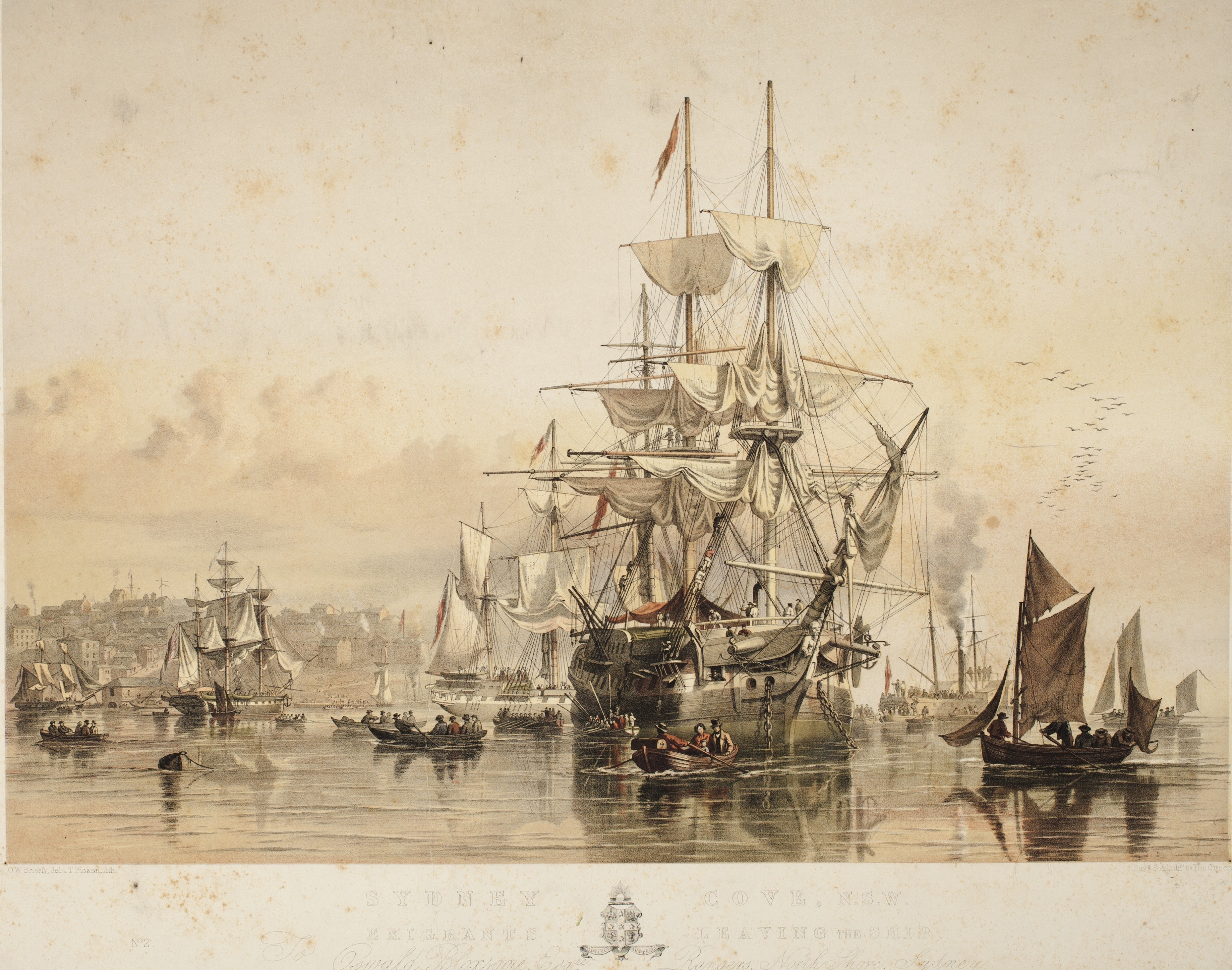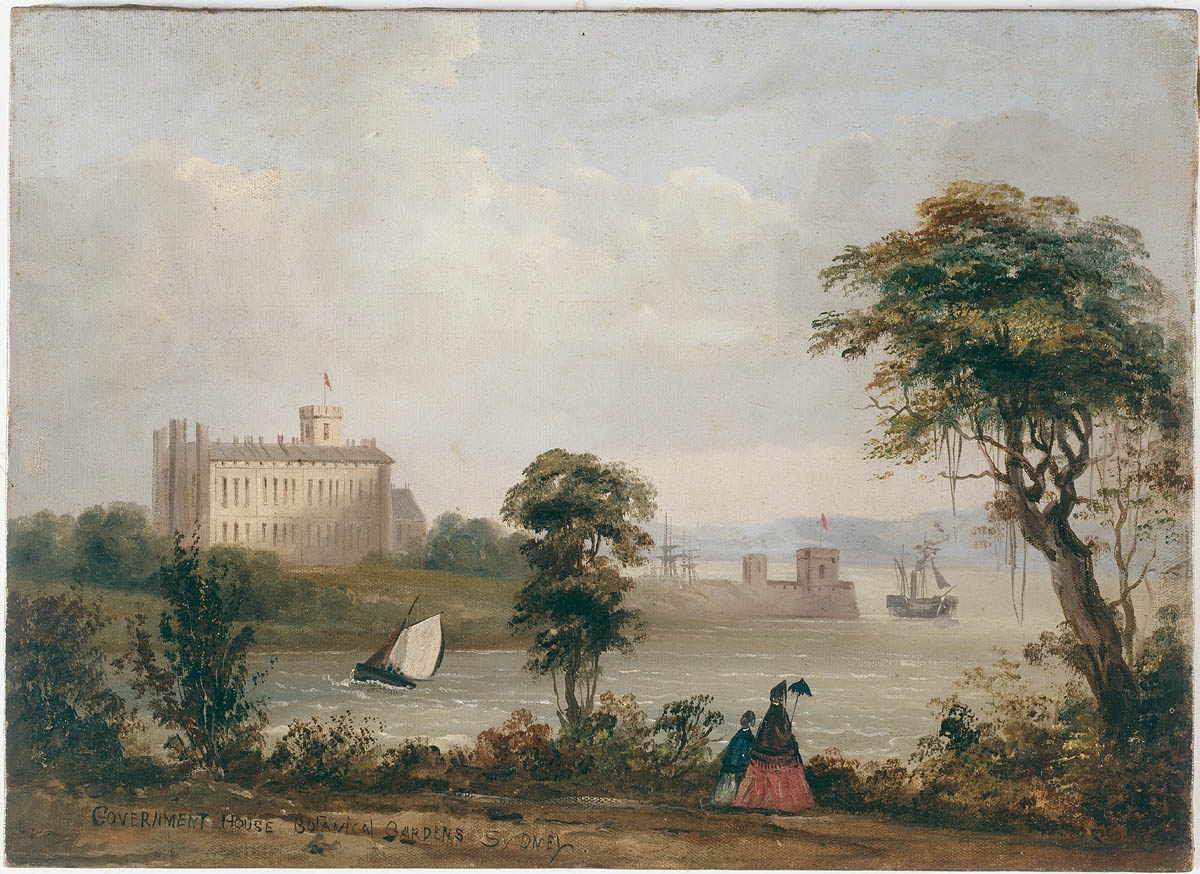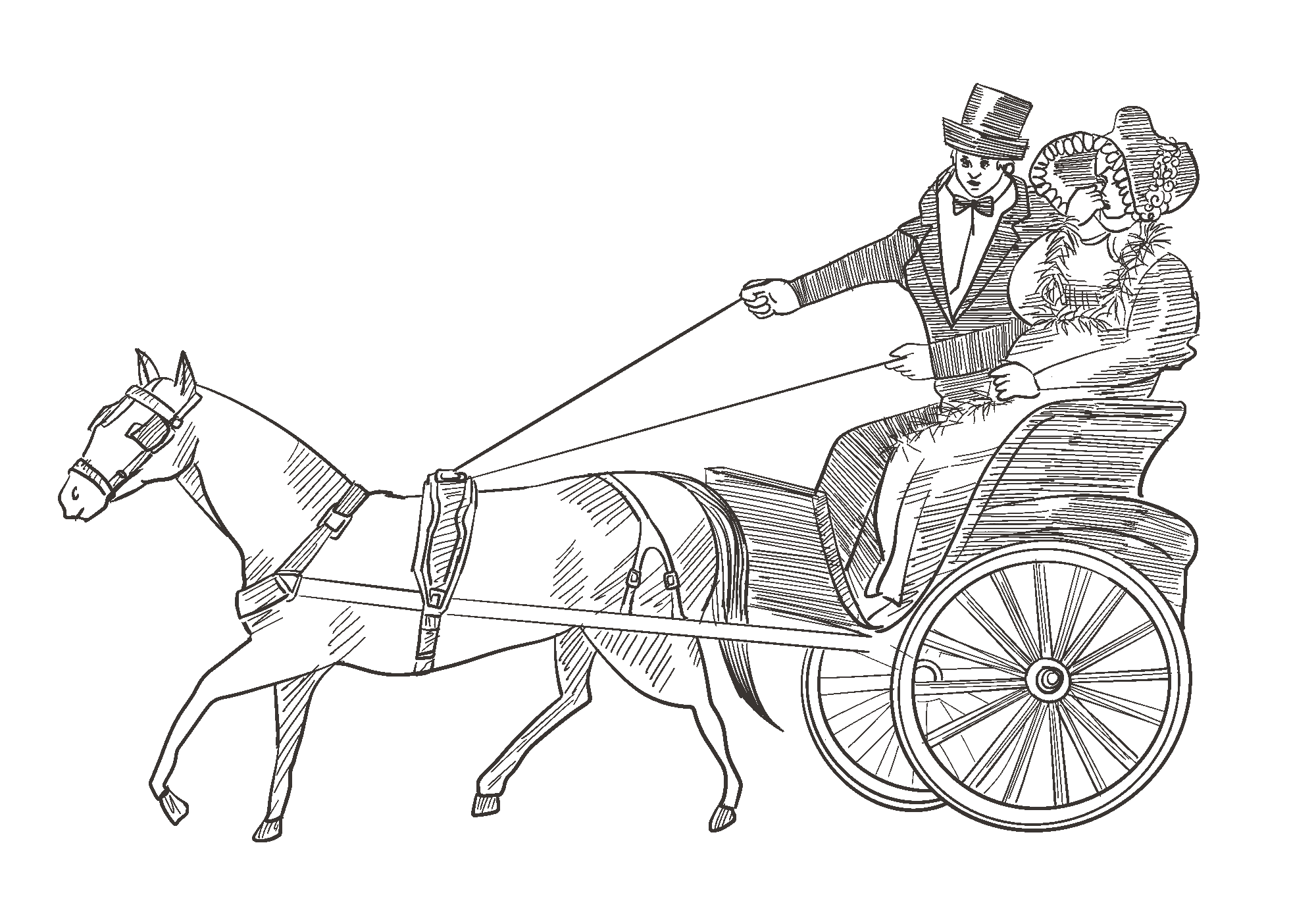Escape to the ‘New World’

Sydney Cove, NSW, Emigrants Leaving the Ship, 1853
Lithograph by Oswald W Brierly, Thomas Picken, State Library of NSW, [DG V1/7]
We are gliding charmingly along the shores of Australia and are now only 200 miles from our destined port! … I am delighted with what I have seen of the shores of the New World. They are not at all deficient in picturesque beauty.
Caroline Husband, December 18521
In 1852 a solicitor named James Husband fled his large house in Hampstead Hill, outside London, England and sailed to Australia. His wife, Caroline Jane née Home, a descendant of the Earl of Home, and their seven children then followed arriving in Sydney on 24 December 1852, after a four-month voyage aboard the former convict ship, General Hewitt. The couple’s children were Caroline, Cordelia (Cordy), James junior, Frances (Fanny), Emma-Jane, Ellen and Emily.2
Historian, Anne Philp, has published excerpts of the eldest daughter Caroline Husband’s diary in her book, Caroline’s Diary: A woman’s world in colonial Australia. Philp described the context of the family’s misfortune as an ‘almost Dickensian melodrama’ featuring the arrest of James Husband, followed by a court action, his hasty departure, being chased by bailiffs, and the family’s eventual voyage to the great unknown world of Sydney in the 1850s.3
The family had a very comfortable life in a large home in Hampstead Hill, where they employed a groom, cook, and house and nursery maids. As a result, the circumstances of their departure and new life in Sydney required a considerable adjustment.

Government House, Botanical Gardens, Sydney, c1855
Painting by unknown artist, State Library of NSW, [ML 445]
The Husbands soon settled in simple lodgings in Bourke Street, Woolloomooloo. Until Mr Husband could register and practice law in New South Wales, the family sold Mrs Husband’s jewellery and silver, borrowed money, and dropped some of the comforts to which they had become accustomed.
Despite these challenges, the family still managed to employ a servant and the three eldest daughters, Caroline, Cordy and Fanny, enjoyed a happy first month entertaining new friends with evenings of card games and music, walking in The Domain and Botanic Gardens, sailing on Sydney Harbour and venturing to Coogee Bay.4
Caroline was offered work as a governess for the family of the Anglican minister, Reverend William Macquarie Cowper, in the town of Stroud, New South Wales. Despite her father’s distaste at having a daughter take on paid employment, Caroline accepted the position and left for Stroud on 1 February 1853. She had ‘a most dreadful parting from all’ as she boarded the Rose steamer and arrived at Raymond Terrace the following day and then at Stroud in the evening.5
Her post as governess was a very ‘dull’ and ‘unhappy’ one, which she characterised as inhabiting a ‘dreadful purgatory’. In April 1853 a notice in Sydney’s Empire newspaper placed by James Husband announced he was ‘one of the Attorneys of Her Majesty’s Courts of Queen’s Bench and Common Pleas, and a Solicitor of the High Court of Chancery in England’ and intended to apply to the Supreme Court of New South Wales to be admitted.
Meanwhile, Caroline quickly ’tired’ of the governess ‘mode of life’ and on 2 May, welcomed news from home informing her of the Supreme Court’s decision to admit her father to practice law. She returned to her Sydney life by the end of the month.6
Read the next part of the story.
Anne Philp, Caroline’s Diary: A woman’s world in colonial Australia (Spit Junction, NSW: Anchor Books Australia, 2015), 50. ↩︎
Philp, Caroline’s Diary, 5, 41 and 256 and ‘Shipping Intelligence’, Empire, 25 December 1852, 4, http://nla.gov.au/nla.news-article60133167. ↩︎
Philp, Caroline’s Diary, 3. ↩︎
Philp, Caroline’s Diary, 53-54. ↩︎
Philp, Caroline’s Diary, 58. ↩︎
Philp, Caroline’s Diary, 58-59 and 62 and 65 and ‘Advertising’, Empire, 21 April 1853, 1, http://nla.gov.au/nla.news-article61323565. ↩︎

